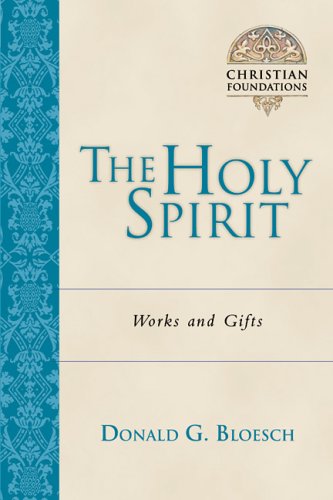Tongues: Dead Formalism or Sanctifying Sign of the Spirit?
I just re-read the following poignant warning from the late Dr. Donald Bloesch: “Pentecostalism can become a new formalism, that words of prophecy and speaking in tongues can simply be outward acts that assure us of acceptance by our peers and be completely bereft of the sanctifying presence of the Spirit of God” (The Holy Spirit: Works & Gifts [Downers Grove, IL: IVP Academic, 2000], p.14). This forms part of Bloesch’s own appraisal as one who counts himself within the Reformed traditions of the Church and yet wishes to receive the refreshing encouragement of Pentecostal spirituality with special regard to the ever renewing life and ministry of the Spirit in the life and ministry of the Church.
 His call to Pentecostals is a call we must heed. In fact, I would say it is the voice of the Spirit to our movement. In our move away from dead formalism (as expressed by the early founders of twentieth century Pentecostalism) it is only too apparent that a static approach to tongues as a badge of Pentecostal inclusion becomes just one more brand of dead formalism. Tongues can be faked. And even genuine tongue speech can flow from a life needing sanctified. Just consider the Corinthians who seem to have both majored on tongues as well as sexual license while ignoring love for each other. They had tongues. They lacked purifying love.
His call to Pentecostals is a call we must heed. In fact, I would say it is the voice of the Spirit to our movement. In our move away from dead formalism (as expressed by the early founders of twentieth century Pentecostalism) it is only too apparent that a static approach to tongues as a badge of Pentecostal inclusion becomes just one more brand of dead formalism. Tongues can be faked. And even genuine tongue speech can flow from a life needing sanctified. Just consider the Corinthians who seem to have both majored on tongues as well as sexual license while ignoring love for each other. They had tongues. They lacked purifying love.
As Paul says, speaking in tongues is not life-giving to the gathered church even while beneficial to the speaker (unless interpreted). Neither should it be regarded as simply an entrance token into the Pentecostal community. It is a testimony of the Spirit in the midst of the church as a call to holy living as we speak in holy tongues. It is the continuing testimony of the Spirit’s claim to the gathered church that Jesus is Lord. That he can give gifts as he sees fit, but that all of these flow from the freely given love of God in His Spirit. And the Spirit is the free gift of God because God is love. There is no possessing the Spirit (nor the signs of the Spirit), but only receiving again the filling of the Spirit as the abiding testimony of God’s gracious life-giving and sanctifying presence among us.
Thus, speaking in tongues cannot be treated as a mark for inclusion without regard to the continuing life of the Spirit in the gathered body of Jesus. Our Lord baptizes in the Spirit not as initiation and nothing more. He baptizes into the very life of the Spirit (John 7.38-39). He submerges us into that life which is every widening and deepening (Eph.3.13-21). That life which flows from the very throne of the Father and of the Lamb and brings healing to the nations and the renewal to the face of the earth (Rev.21.1-2). That life shared between Father and Son (John 5.26).
Category: Spirit, Spring 2014


